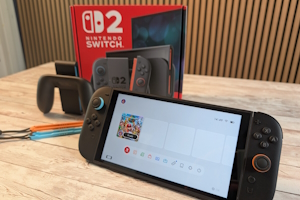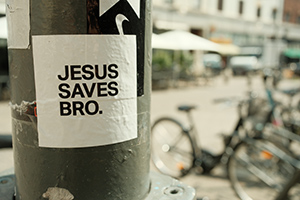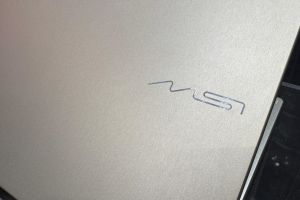Reus: un indie game racconta la guerra tra Divinità e Uomini

Reus è un ambizioso progetto ideato nei tetri corridoi dell'Università di Utrecht. All'interno trovate l'intervista agli sviluppatori, il resoconto delle caratteristiche di gioco e tutte le novità a proposito di Reus.
di Gioacchino Visciola pubblicato il 03 Maggio 2013 nel canale VideogamesInterview (English)
Gamemag: Why the decision to create a similar game? Have you read about the millions of people who want a sequel to Black & White?
Adriaan, Lead Designer: Black & white was not a particular drive to make Reus (and Reus is not really 'Black&White - the indie version'!), but the gap in the market and my fondness of God-games sure was a big motivation!
I think the biggest reasons to make Reus were the bolt of inspiration that struck at that time, the love I have for RTS, Management, Simulation and God Games, and the opportunity.
We thought, with our technical backgrounds and the option to take high risks, we were one of the few teams to be able to make such a game. Also, we just wanted to create something new and fresh. Summed up, this seemed like the right thing to do at the time.
Gamemag: I don’t want to be rude, I would like to ask you something: in a funny way, you let the world know that you are almost “out of cash”. This statement made me a smile and got me thinking: many newspapers speak of "compensation" and "production costs" for the video game industry. I would like to know how you overcome adversity in recent months and your ideas on the topic?
Manuel: We totally don't mind you asking. It is actually really important that people know in which way they can start working on a game without having money available. I think independent developers found many ways to work without money. I would recommend reading post-mortems at gamasutra.com to find out how people do it.As for our own story: We've been working on Reus in a company setting for over a year (and we did a lot before that as well). At the moment of founding Abbey Games we pooled together a few thousand euros from our savings, family and friends. This was about enough to pay office rent for the year and buy some chairs for people to sit on. The only reason we could work like this is that the founders are all still students, which meant that we still get study loan from the government for studying. That way we can pay for food and rent, while investing most of our time on the project. It's far from a perfect situation, but it allows us to live and work on Reus at the same time. Another important reason is that the 10+ people that worked with us on Reus throughout the year were either also still studying, or worked as part-time freelancers. Because of this people could sustain themselves, while working on Reus without getting a paycheck. Instead we pay out royalties as a part of the revenue relative to the amount of work invested. This way all of us are taking the same risk: invest time and effort in a game we love, and share any accomplishment with the entire team in the end. There is still a lot of stress involved, since we don't have cash lying around to deal with broken computers, traveling to festivals, promotional activities or problems we encounter. However, in some weird way the stress keeps us very productive and in the end we could produce a lot of value for Reus, rather than spending time raising more money.
Gamemag: Gamer’s genuine curiosity is well known! So… some “Top Secret” information about the game or features that have not been released yet?
Manuel: One of the most important things people don't know yet, is that there is a fourth giant.
We've hinted at it a few times, but we'll soon release what this giant will actually look like and what its role is in the game. We can already say that the fourth giant will also be player controlled and that he will be important in the war-related gameplay. For other top secret information, people can come to the forums or subscribe to our mailing list.
Gamemag: There is talk about technological advancement, the opportunity for our "Humans" to build ships and a “Unique Campaign Experience” (if you are asking yourself if I follow you. Yes, I have been following you on the forum since the beginning!).
Adriaan: Ow no, you went to the forum. I tend to 'Molyneux' all over that place, hahaha! When you're working on such a project, you kind of start to empathize with Molyneux, by the way. You're all like super enthusiastic about all these cool things that spark the imagination, and before you know it people will have expectations ranging from something like Godfinger to Black&White 3! It's a bit intimidating, but it has it's super nice to have people be curious and interested in the game!Returning to the real question: All these things are pretty modest. yes, there is some tech advancement, but it's not part of the core gameplay. Humans can build ships, but again, this is not really what the game is about. In the end, we choose Reus to be a really replayable game where you create nature that works as good as it can while balancing the human growth, and your primary source to do that is by placing these natural sources that provide stuff like Food and Wealth for a village to grow, but also stuff like Danger to keep humans in check. The 'campaign' is more like a different take on the usual campaign. There is a background story, but what stands out is that the game allows you to explore different options and challenges at your own pace, and in your own order. In Reus humans can reach certain developments when an era ends. These range from super simple, like getting them to finish a project, to really hard, like having a super wealthy desert city. These developments will also unlock new options for you in next games. You can complete just one development in each game of Reus you play, but you could aim for getting a lot of these developments in one go. My own highscore is 15 developments in one game, which is a whole puzzle and challenge in itself
Gamemag: What are the main difficulties in the development of a game like Reus? Have you used internal development tools or you have referred to some third-party tools?
Bas: Probably the most difficult thing in the development of Reus is that the game is very complex. The game contains over a 100 plants, animals and minerals which all have different influences on the game. It would have been an enourmos task to code them all seperatly. We came up with an intricate system that allows our designers the specify how these natural sources interact with respect to their environment and artists to define what they look like or what kind of behavior they have visually without needing the help of a programmer. This allowed incredibly fast iteration on all gameplay related code to balance everything in Reus.Reus is complelty developed with in-house software and tools. This was for us both extremely useful but also a burden as we had to maintain our tools. For gameplay related tasks we ended up not using a tool as we noticed the gameplay evolved a lot and tools would not be able to keep up. The gameplay of Reus is therfore mostly defined in xml files which in the end is about 15% of the entire codebase.
Gamemag: What do you think of the explosion of the mobile industry in the last years? You think that the “tablet” will become the ideal platform for gaming? We will have the chance to see Reus on smartphones or tablet in the future?
Bas: Actually, doing a lot of work on my IPad myself I think its a great development. I think that tablet gaming could become really big but I doubt that at least in the near future it will win from pc with respect to the ideal gaming platform. We are thinking about porting Reus to other platforms than Windows, tablets are definitely something we are looking at. However, Reus is, as it is now, a true pc game and we really want to focus on that first.
Gamemag: Kickstarter.com is a “USA only” platform and this has prevented you from spreading “the word” and the project throughout the internet. How much would have it been important to have such a powerful “funding tool” for your game?
Maarten; Lead Artist It's too bad Kickstarter is for the USA only, because great projects exist worldwide. There are some international alternatives though, which look promising.We've been thinking about crowd funding a lot, but although our budget is almost nonexistent, running a successful campaign requires a lot of time and effort. We decided to put this time and effort directly into the game, making it the best we can.
Perhaps a naive thought, since a successfully crowd funded project generates much exposure. But the 'zero budget' has at least one advantage: it seemed to attract skillful people that really wanted to work on Reus - and make a success.
Gamemag: Not everyone knows Reus – not yet. What would you say to all these people to convince them?
Adriaan: If I have to give you a message about Reus, it's certainly going to be how surprisingly deep Reus is. There is a lot you can do, a lot of challenges to beat, and some require a lot of skill and smarts.
Manuel: Don't forget to check out the videos to understand the looks and feel of the game.







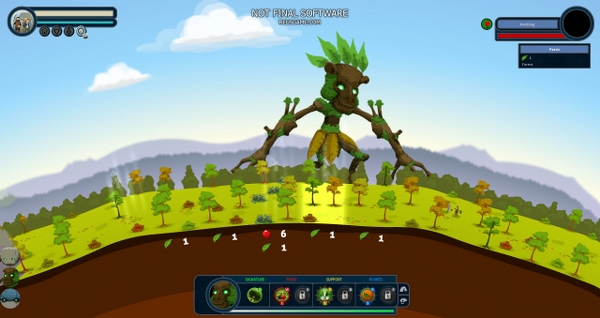
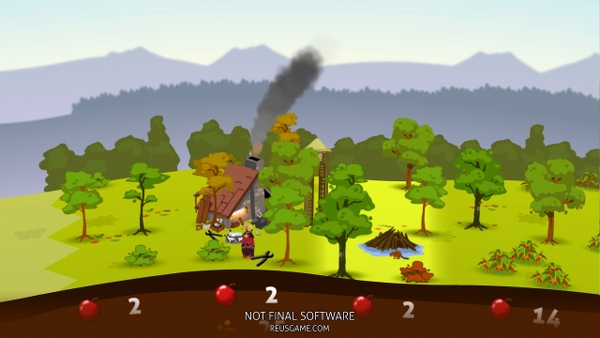
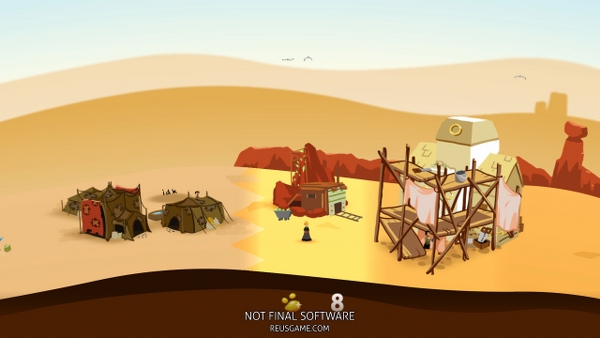
 Intervista a Stop Killing Games: distruggere videogiochi è come bruciare la musica di Mozart
Intervista a Stop Killing Games: distruggere videogiochi è come bruciare la musica di Mozart Samsung Galaxy S25 Edge: il top di gamma ultrasottile e leggerissimo. La recensione
Samsung Galaxy S25 Edge: il top di gamma ultrasottile e leggerissimo. La recensione  HP Elitebook Ultra G1i 14 è il notebook compatto, potente e robusto
HP Elitebook Ultra G1i 14 è il notebook compatto, potente e robusto Un test senza precedenti: un'intera autostrada trasformata in autoscontro per provare gli ADAS
Un test senza precedenti: un'intera autostrada trasformata in autoscontro per provare gli ADAS STMicroelectronics ha comprato il business MEMS di NXP: investimento da 950 milioni di dollari
STMicroelectronics ha comprato il business MEMS di NXP: investimento da 950 milioni di dollari Soprese, quelle belle: GoPro MAX da 399€ a 259€, un prezzo senza senso questa mattina, non sappiamo per quanto
Soprese, quelle belle: GoPro MAX da 399€ a 259€, un prezzo senza senso questa mattina, non sappiamo per quanto Ancora in offerta a 29€ o 59€: sono i FRITZ!Repeater 1200 AX e 600, i più venduti e desideati, vista la qualità
Ancora in offerta a 29€ o 59€: sono i FRITZ!Repeater 1200 AX e 600, i più venduti e desideati, vista la qualità  Wolfenstein arriva su Amazon Prime: sarà il nuovo fenomeno dopo Fallout?
Wolfenstein arriva su Amazon Prime: sarà il nuovo fenomeno dopo Fallout? NVIDIA N1X: SoC ARM con GPU Blackwell da 6144 core supera tutte le iGPU moderne
NVIDIA N1X: SoC ARM con GPU Blackwell da 6144 core supera tutte le iGPU moderne Pebble è di nuovo Pebble. Ecco il ritorno ufficiale di un nome storico degli smartwatch
Pebble è di nuovo Pebble. Ecco il ritorno ufficiale di un nome storico degli smartwatch Accordo commerciale UE-USA: dazi al 15%, ma zero su alcuni settori. Trump esulta
Accordo commerciale UE-USA: dazi al 15%, ma zero su alcuni settori. Trump esulta Amazfit GTR 3 a 69€, il Pro a 99€,T-Rex Outdoor al minimo storico e non solo: Amazon non vuole rivali nemmeno per gli smartwatch
Amazfit GTR 3 a 69€, il Pro a 99€,T-Rex Outdoor al minimo storico e non solo: Amazon non vuole rivali nemmeno per gli smartwatch Stazione tutto in uno e i pavimenti li asciugano anche: i 2 robot Roborock al prezzo minimo registrato sono fra i più venduti
Stazione tutto in uno e i pavimenti li asciugano anche: i 2 robot Roborock al prezzo minimo registrato sono fra i più venduti  Torna il re dei mini PC con AMD Ryzen 5 a 169€: tanta potenza, 16GB di RAM, concorrenza in imbarazzo
Torna il re dei mini PC con AMD Ryzen 5 a 169€: tanta potenza, 16GB di RAM, concorrenza in imbarazzo RTX 5000 Laptop: ASUS svela tutti i dettagli sulla potenza grafica (TGP) dei portatili ROG e TUF
RTX 5000 Laptop: ASUS svela tutti i dettagli sulla potenza grafica (TGP) dei portatili ROG e TUF Coupon e promo Amazon su 3 super portatili: c'è un HP a 999€ con 64GB di RAM, Core i7 e 2TB SSD, alla metà 2 con 24GB o 32GB
Coupon e promo Amazon su 3 super portatili: c'è un HP a 999€ con 64GB di RAM, Core i7 e 2TB SSD, alla metà 2 con 24GB o 32GB La Cina pronta a sfidare NVIDIA? Le GPU Lisuan a 6 nanometri hanno la RTX 4060 nel mirino
La Cina pronta a sfidare NVIDIA? Le GPU Lisuan a 6 nanometri hanno la RTX 4060 nel mirino